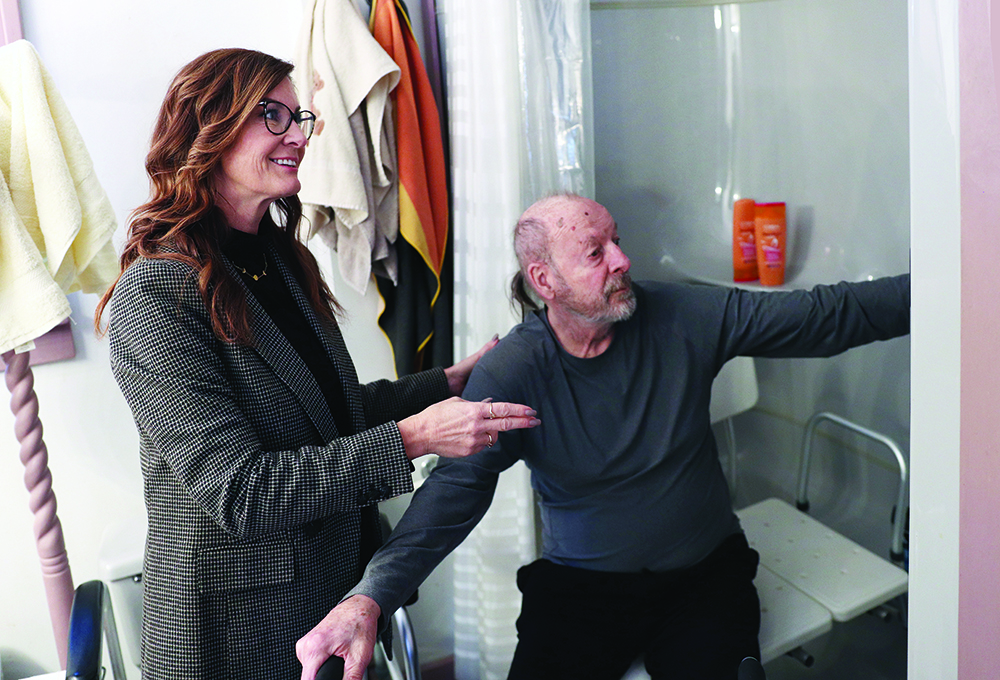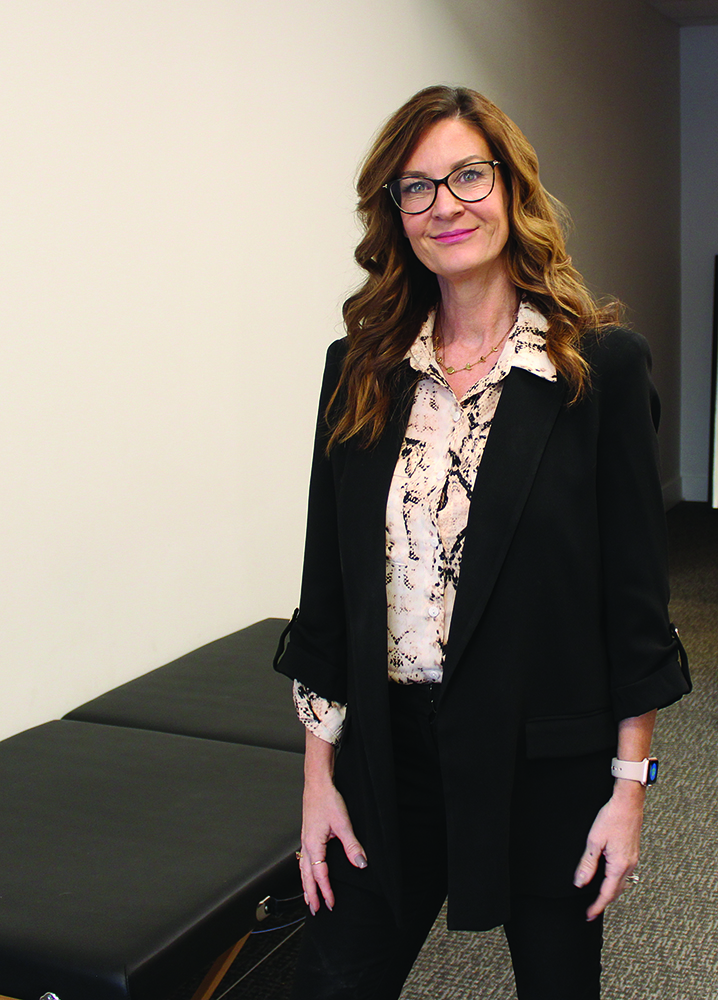
Disability rights have long been a passion for Marnie Courage [BA/96, BMROT/00].
While studying arts at UM in the 1990s, she had a job in community respite services, supporting people with physical and intellectual disabilities.
“I had grown up in privilege and always assumed that my rights would be respected,” she remembers. “Through that work, I saw that many people’s rights to full participation in society aren’t respected, and their needs aren’t met. That was a hard pill for me to swallow.”
Courage first learned about occupational therapy (OT) through experiences with a cousin who had a rare genetic disorder and disability. She observed how his occupational therapist broke down daily tasks into simple steps that allowed her cousin to eventually dress himself, feed himself, brush his own teeth and use the toilet, with some adaptations and special equipment.
“I thought, ‘Here’s a profession where I can make tangible improvements in people’s quality of life,’” she says.
Courage earned her UM degree in occupational therapy in 2000 and started out working with children. In 2005 she opened her own OT clinic, Enabling Access, not far from the Grant Park area where she had grown up. It specializes in assessments, education and services for people with physical, intellectual and mental health needs.
Over the past 19 years, Courage has gone from working solo to employing a 10-person team. She has also started specializing in home modifications for older adults and those with disabilities, receiving certifications from the University of Southern California and University of Buffalo.
Home modifications, she says, can range from ramps, vertical platform lifts, and safety bars for bathing and toileting to “smart” home technology.
She works closely with renovators on structural changes to homes, such as turning a hallway bathroom into an ensuite to give a client easier access from their bedroom. She has overseen additions to houses to create more accessible space or improve storage capacity for mobility and medical equipment.
Another aspect of her work is helping clients determine future accessibility barriers and whether it is better to modify or move. If clients don’t have access to community-based health-care services and social integration, she says, they may become isolated and see their wellness decline.
“It’s very rewarding to know that the recommendations I provide can have a direct, positive impact on someone’s life, and that I’m helping them make informed decisions,” she says.
Last year, Courage launched a second business, Incluzia, which is aimed at increasing accessible housing options through innovative tools, training, consultation and advocacy.
“In Canada, disabled people represent 41 per cent of those living below the poverty line,” she says. “Basic human rights are not being met.”
Her efforts have included travelling to Parliament Hill in 2022 to support Bill C-22, Canada’s first income security benefit for people with disabilities, and consulting with Scott Johnston, then Manitoba’s minister of seniors and long-term care, on a $3-million home modification program for seniors.

The home modification program was announced in April 2023. Johnston asked Courage to speak at the media launch about the importance of retrofitting homes to help older adults age in place. “It shows that they’re listening to the need for financial assistance to make essential modifications,” she says.
Still, she says, there is a large gap between supports for seniors and those with physical disabilities.
“Right now, if you’re an adult with a disability and need a ramp or other basic home modification, there are limited funding opportunities. Manitoba is one of the only provinces where that’s the case.”
Through Incluzia, Courage has been working on an initiative called Access Match, an accessible housing database and search engine. The platform uses customizable search filters to match individuals across Canada with accessible housing that meets their needs. She is currently working with Sunnybrook Research Institute in Toronto to develop its use with various stakeholders.
“The end goal is that all Canadians will be able to find properties for rent or sale in their location that have the accessibility features they need.”
Courage says the demand for accessible housing in Canada is growing rapidly. By 2036, it is projected that about 25 per cent of the Canadian population will be over the age of 65.
Another initiative, called OT HomeFX, is centred around a digital tool to assist occupational therapists with assessments in a variety of settings. Courage is applying for a research grant to test the tool’s usability with Jacquie Ripat [BMROT/92, M.Sc./98, PhD/11], professor of occupational therapy, who was a mentor to her at UM.
“Jacquie was very influential to me,” Courage says. “Her assistive technology research has had a real impact.”
Courage volunteers on committees with the Canadian Standards Association and Accessibility Standards Canada. She has spent three years working with the Canadian Association of Occupational Therapists on a home modification task force. She has also contributed to content for training renovators to tackle accessibility projects, provided through the Canadian Home Builders’ Association.
“My goal is to bring together community health care, home modifications and access to social connectivity, so people can stay safe and well at home for as long as they choose or are able,” she says.
BY ALAN MACKENZIE
